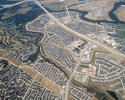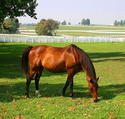In 1964, the Japanese National Railways (JNR) was on a roll. The state-owned but largely unsubsidized company had just finished seven years of uninterrupted profits. Moreover, in 1964 it opened the Shinkansen (meaning new main line) between Tokyo and Osaka in time for the Summer Olympics. read more »
Economics
The Dark Side of Japan's Bullet Trains
- Login to post comments
Fisker-Foxconn Could Get Region Deeper Into EV Era
If Fisker ends up building electric vehicles with Foxconn Technology Group in Wisconsin, as seems likely, the stunning new development could make a huge winner out of what was an economic-development disaster — and put the state back into the business of making cars for the first time in 13 years. read more »
Those millions of New 'Green' Jobs are Going to China and India
When U.S. Secretary of State John Kerry recently urged workers upset by the Biden administration’s decision to scuttle the Keystone XL pipeline to “learn to make solar panels”, he was oblivious to the fact that China and India dominate the solar panel manufacturing market. read more »
- Login to post comments
Economic Civil War
Our national divide is usually cast in terms of ideology, race, climate, and gender. But it might be more accurate to see our national conflict as regional and riven by economic function. The schism is between two ways of making a living, one based in the incorporeal world of media and digital transactions, the other in the tangible world of making, growing, and using real things. read more »
- Login to post comments
If Housing is a Human Right...
If housing is a human right, then it should no more be the vehicle for profiteering than other basic utilities of human existence such as the supply of water, education or life-saving medicine. If housing is a human right, then profiteering off housing is not only bad policy, it’s also immoral.
Among numerous groups in California and elsewhere, there is much talk about a “housing crisis.” Yet this talk is misleading, and if self-styled “housing advocates” want to invoke any crisis, they should more properly be discussing an “affordable housing crisis.” read more »
- Login to post comments
Demographia International Housing Affordability – 2021 Edition
The Urban Reform Institute and the Frontier Centre for Public Policy are pleased to present the 2021 edition of Demographia International Housing Affordability. This report provides housing affordability ratings, using the median multiple, a measurement of income in relation to housing prices, or 92 major markets (metropolitan areas) in eight nations for the third quarter of 2020. read more »
- Login to post comments
Governor Newsom's Recall Challenges
Governor Newsom’s fiscal challenges may be the driving force for the current recall efforts. Under his guidance (I did not use the word leadership), he continues to perpetuate the state’s dysfunctional energy polices and continues to do everything possible to further INCREASE the costs for energy for its 40 million residents. At the same time, the states’ Employment Development Department (EDD) experiences massive fraud and has paid billions of dollars to criminals and continues its spiral into oblivion. read more »
COVID-19 and the Ongoing Global Workplace Revolution
For most of the recent past, economic geography has shifted to ever-larger cities across the globe. By the end of the last decade, many were convinced that we were entering a supreme era of the glittering, high-rise “superstar” city that would inevitably swallow all the best bits of the economy, and serve as unparalleled centers of tech, culture, political activism, and global trade. read more »
- Login to post comments
For Product Narratives, Nowhere Beats Flyover Country
In every pursuit these days, “the narrative” seems to be the thing. Tell a story that checks enough of the right boxes in the zeitgeist, the thinking goes, and you can get citizens, taxpayers and consumers to “buy” what you want them to buy.
This is a reality that’s being used against Flyover Country – but one that also provides us with opportunities to flip the script. read more »
- Login to post comments
Bluegrass, Bourbon, and Basketball
I grew up in the Louisville metro area (Southern Indiana), but somehow never managed to visit Lexington, Kentucky, which is only about 70 miles down the road.
A grant from the Knight Foundation gave me the opportunity to correct that oversight and write an article about Lexington. I’ll admit to a certain selfishness in pitching that idea. I wanted to learn more about Lexington and finally get the chance to visit the city.
Fortunately I was able to get that visit in pre-pandemic. Lisa Adkins, President of the Bluegrass Foundation, even graciously gave me a tour. read more »
- Login to post comments






















